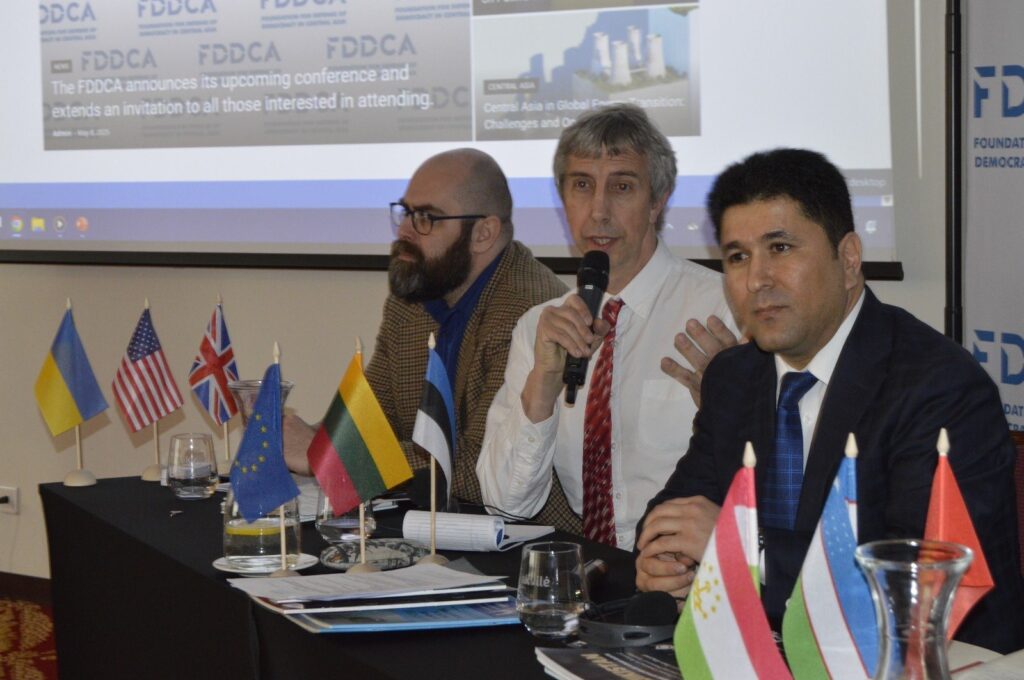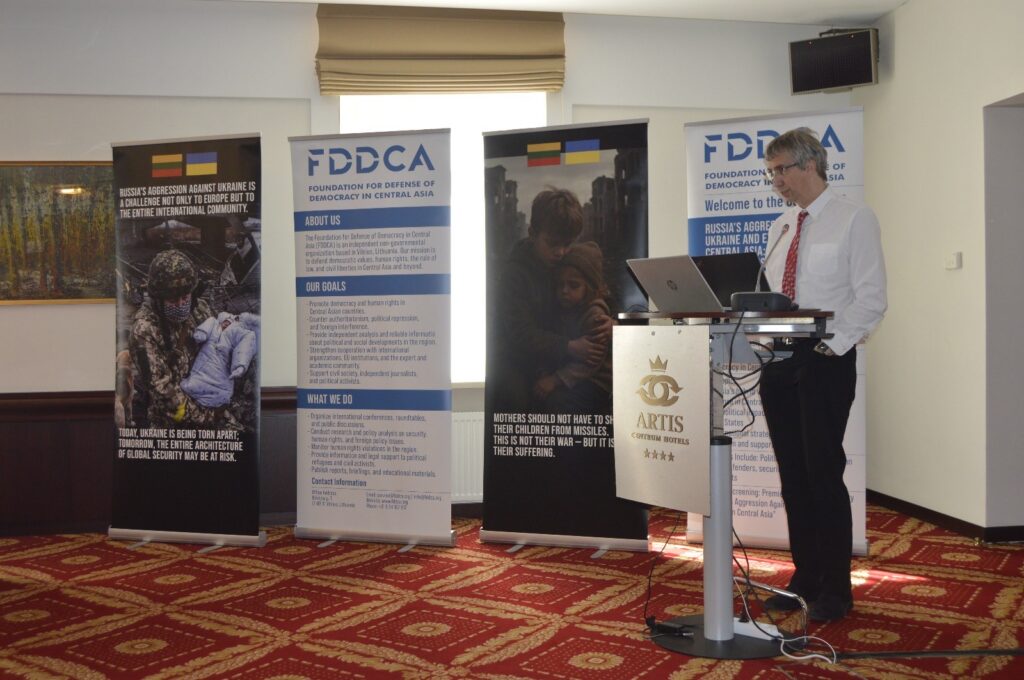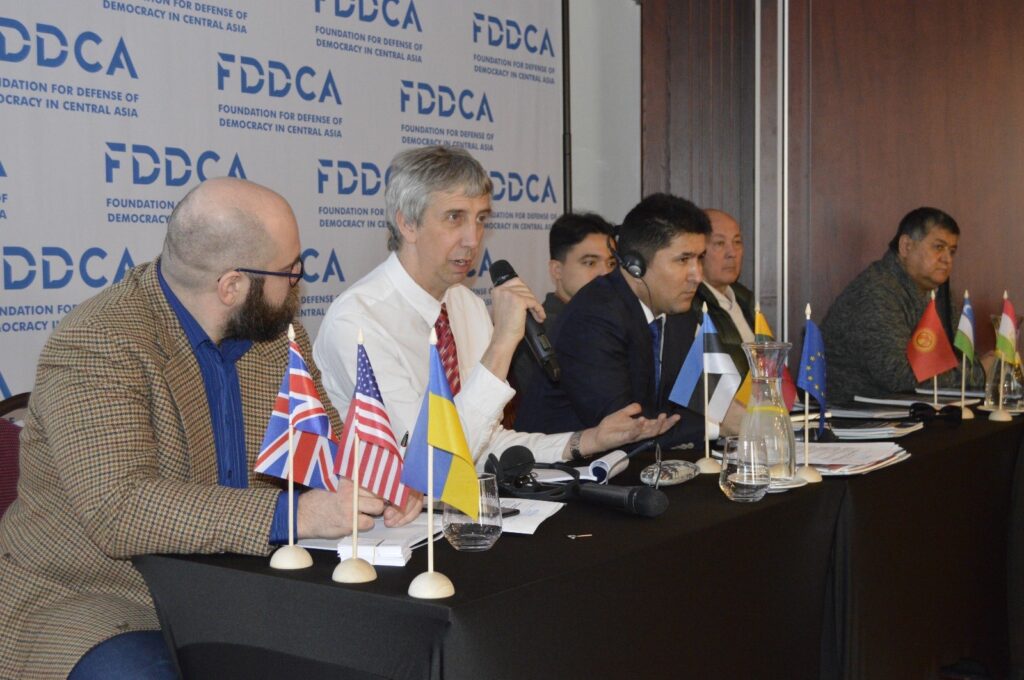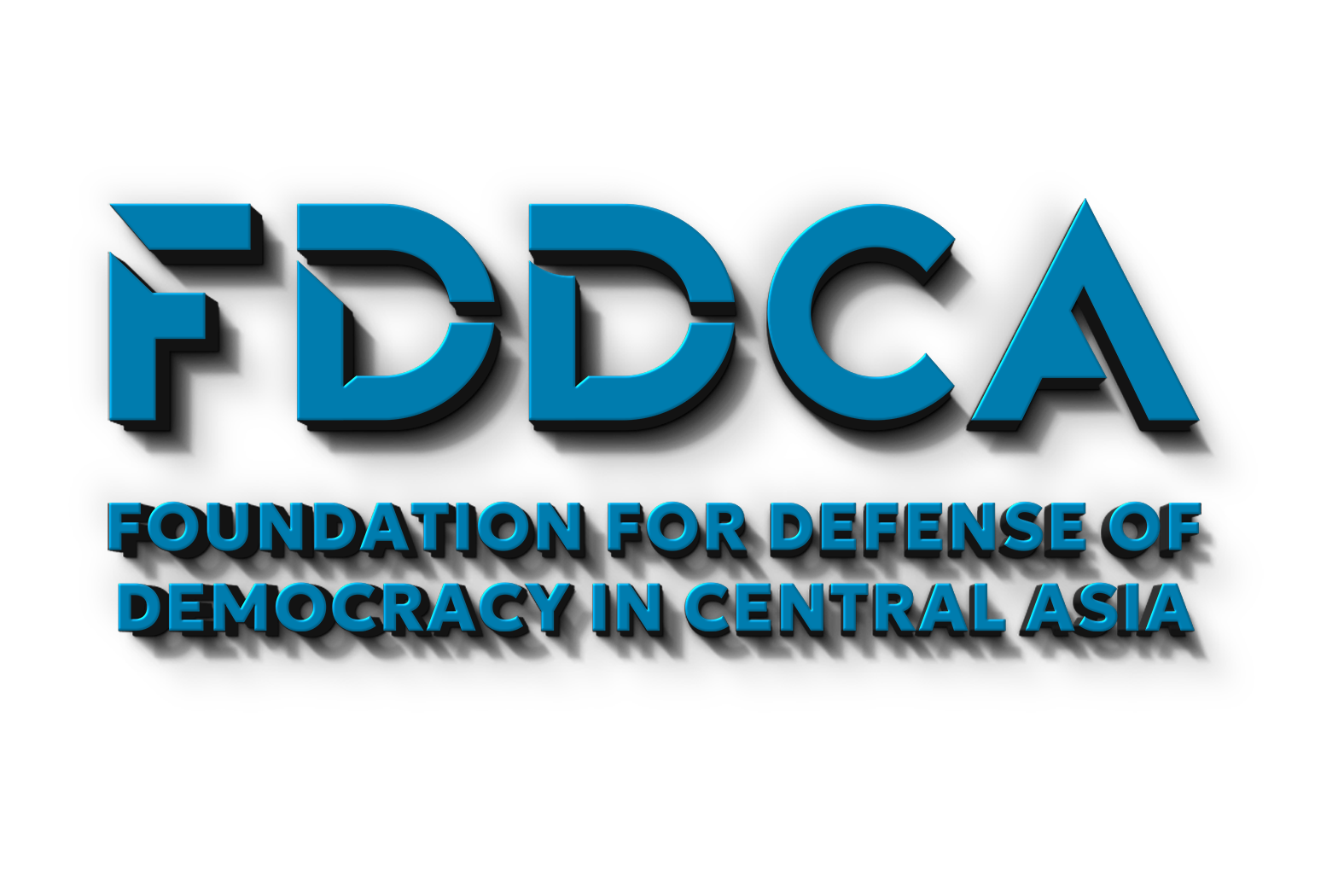Note:
This paper was presented at the international conference
“Russia’s Aggression Against Ukraine and Expansion into Central Asia: Challenges for the Caucasus, the Baltic States, and the European Union”
Vilnius, May 13, 2025
The Russian Federation’s full-scale invasion of Ukraine in 2022 has generated significant concern throughout Central Asia. While this aggression has undoubtedly affected Moscow’s reputation, Russia remains an influential actor across multiple domains in the region. The structural realities of Central Asia’s geography, landlocked and reliant on external transit corridors, continue to shape the developmental trajectories of Kazakhstan, Kyrgyzstan, Tajikistan, Turkmenistan, and Uzbekistan. Despite growing diversification efforts, many trade and infrastructure routes still traverse Russian territory, reinforcing long-standing economic dependencies.
Labor migration and remittances also underscore Russia’s continuing centrality to regional socio-economic stability. Each year, millions of Central Asians, particularly from Uzbekistan, Kyrgyzstan, and Tajikistan, migrate to Russia for employment. These remittances are vital lifelines for their home countries, while simultaneously serving as a lever of influence for Moscow.

Although the war in Ukraine has accelerated efforts by Central Asian states to diversify their security partnerships, most notably with Turkey, Russia remains deeply embedded actor in the region’s security architecture. Engagement from NATO has been constrained, not least due to external pressure from both Russia and China. Meanwhile, despite the presence of the Shanghai Cooperation Organization (SCO), regional governments and populations display considerable ambivalence toward deepening Chinese influence in the security sector.
Russia’s cultural and soft power remains robust. Its universities and educational institutions continue to attract thousands of Central Asian students annually, and Russian-language media retains a dominant position across the region. These cultural and informational ties, alongside a wide network of state-affiliated organizations, consolidate Russia’s broader political influence.
Moscow’s influence translates into coercive leverage. For example, following President Tokayev’s refusal to endorse Russia’s invasion of Ukraine, the Kremlin disrupted operations of the Caspian Pipeline Consortium – Kazakhstan’s primary oil export route – on multiple occasions after February 2022. These actions conveyed a clear message about Russia’s capacity to constrain Kazakhstan’s economic lifelines.
The interplay between authoritarianism and foreign influence is another critical dimension. Russia has long supported authoritarian regimes in Central Asia and has actively pursued disinformation campaigns aimed at undermining democratic norms, human rights, and civil society. These efforts have intensified significantly since 2022.
Yet, authoritarian governance in Central Asia cannot be attributed solely to Russian interference. Other regional powers—including China, Iran, and to some extent Turkey—have adopted ambivalent or non-supportive stances toward democratization. More importantly, Central Asian regimes have largely maintained authoritarian systems since independence, motivated by elite interests and resistance to political reform. Finally, geography alone cannot fully explain the political trajectories of Central Asian countries. Mongolia, situated between Russia and China, stands as a compelling counterexample, demonstrating that democratic governance can emerge despite adverse geopolitical environments.
The EU’s Limited but Evolving Role
In this evolving context, the European Union has an opportunity to recalibrate its approach to Central Asia. The EU’s engagement, while not new, has faced persistent structural and operational challenges. The complexity of the EU’s institutional configuration—comprising the European Commission, Council, and Parliament—can sometimes hinder a unified and effective foreign policy.
While the EU’s hard security footprint in Central Asia remains minimal, it has prioritized capacity-building, border control, cybersecurity, and societal resilience. Economically, EU engagement has matured over the past decade from a development-focused approach to one that emphasizes investment, regulatory convergence, and connectivity.
Yet, the EU’s comparative advantage lies in its normative and soft power. At a time when civil society space is shrinking, when U.S. soft power has been weakened by significant policy shifts since January 2025, and when democratic values face intensifying repression, the EU has a unique opportunity to support independent civil society in Central Asia.
For decades, the region’s governments have made reform commitments, such as those made by President Nazarbayev in pursuit of Kazakhstan’s OSCE chairmanship in 2010, that were never implemented. Since then, governance indicators across the region have deteriorated. The full-scale war in Ukraine has further tightened government control over civil society, exacerbating long-standing challenges.
Civil society organizations face severe constraints, including limited funding, lack of technical capacity, and political repression. Activists also express growing concern about pervasive political apathy among the public, an issue they believe is deliberately encouraged by regional governments to maintain elite dominance. In such an environment, civil society plays a vital role in channeling popular grievances and fostering resilience.
Despite the official rhetoric about “vibrant” civil societies, often measured by the number of registered CSOs, many of these organizations are inactive or heavily co-opted. For example, in Kyrgyzstan, only 7,000 of 20,000 registered CSOs are operational. In Tajikistan, fewer than half of the 2,000 registered NGOs remain active as of 2024.
State funding dominates the CSO landscape, rendering many organizations government-organized non-governmental organizations (GONGOs). In Kazakhstan, more than 70% of CSOs in major cities are state-funded, with that number rising above 90% in rural areas. In Uzbekistan, a similar pattern prevails.
Rethinking EU Engagement
Given these challenges, the EU is called not only to deepen its engagement but also to revise its modalities of cooperation. Interviews with local stakeholders suggest several actionable priorities:
- Diversify Partnerships: EU funding should not be disproportionately concentrated among a few trusted organizations. Smaller, grassroots CSOs, often more attuned to local needs and realities, should be more actively supported, even if this requires additional administrative oversight.
- Broaden Linguistic and Geographic Reach: Many local organizations lack the capacity to work in English or Russian but operate effectively in national languages. Greater effort should be made to include Kazakh-, Kyrgyz-, Tajik- and Uzbek-speaking CSOs. Similarly, engagement should extend beyond capital cities to reach marginalized or under-resourced regions.
- Avoid Overreliance on GONGOs: While official partnerships are sometimes unavoidable, the EU must avoid working primarily through state-linked CSOs that reflect government narratives.
- Engage Beyond Established Channels: Many local activists perceive that Western donors, especially over the past two decades, have practiced a form of self-censorship, avoiding politically sensitive topics and favoring “safer” areas such as technical development or social service delivery. While the complexities of authoritarian contexts are understood, there is a clear call for more robust engagement on democracy and rights-based issues.
- Maintain Political and Moral Support: With the U.S. withdrawing significant support from the sector, the EU’s commitment becomes even more crucial. Civil society actors increasingly feel isolated and fatigued. A sustained, visible EU presence would offer not only material assistance but also critical political legitimacy.
Overall, the current geopolitical moment presents both risk and opportunity. While Russia and China maintain significant influence in Central Asia, and regional regimes remain deeply authoritarian, the EU can and should play a meaningful role in supporting civil society and promoting democratic values. To do so effectively, it must listen more carefully to local actors, diversify its partnerships, and recalibrate its strategies to reflect the region’s evolving realities.


